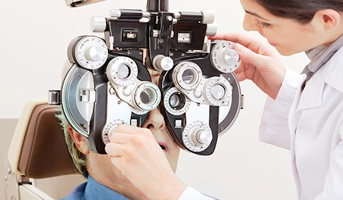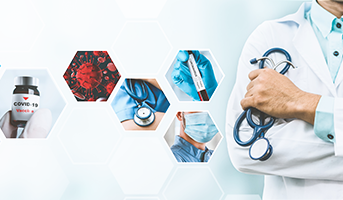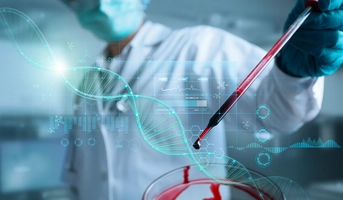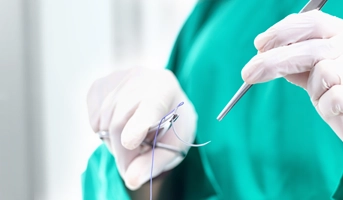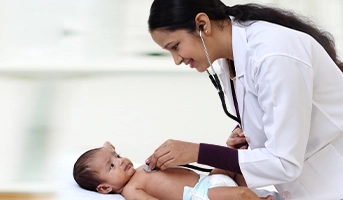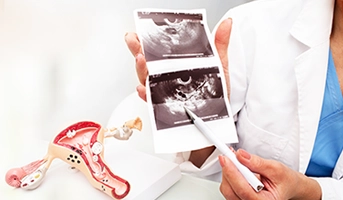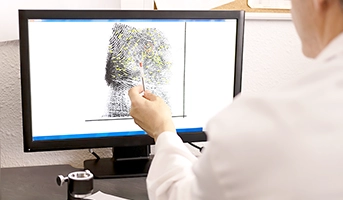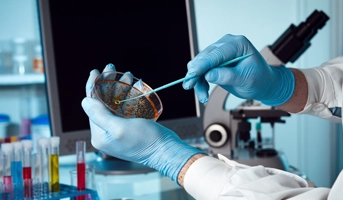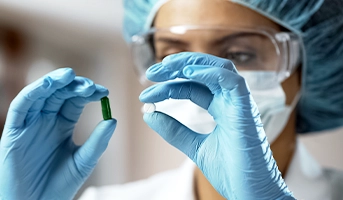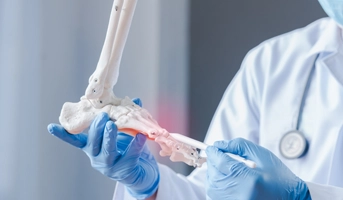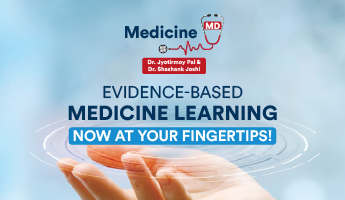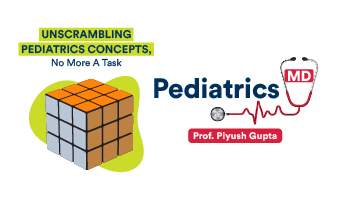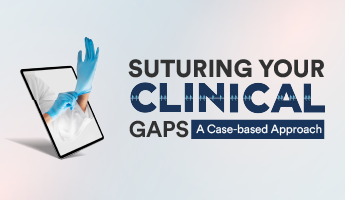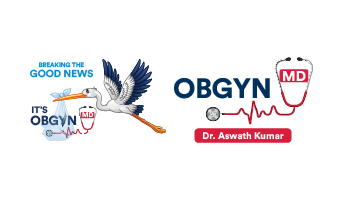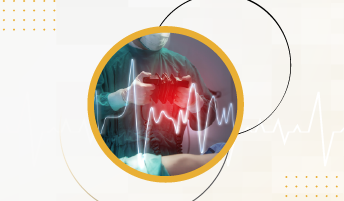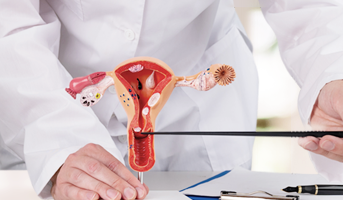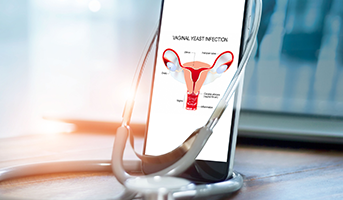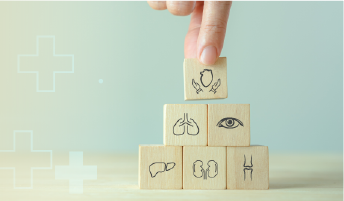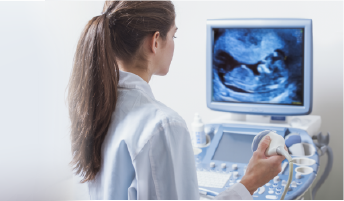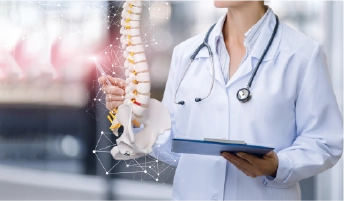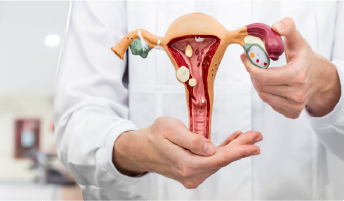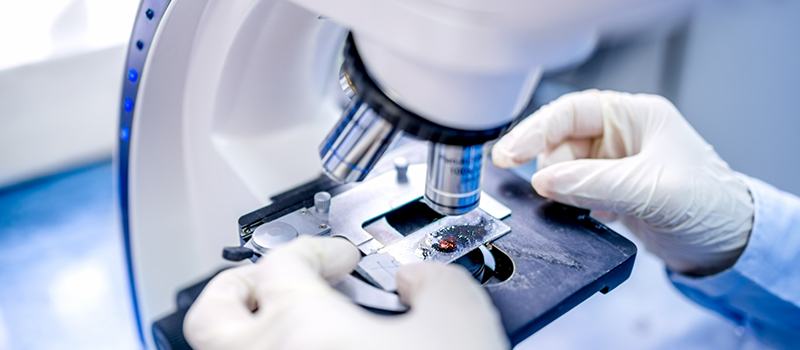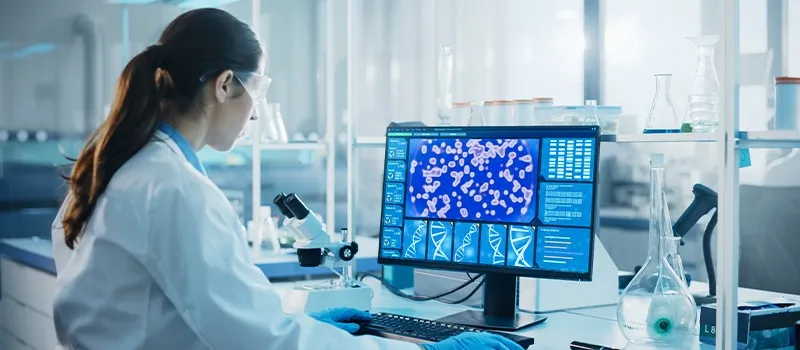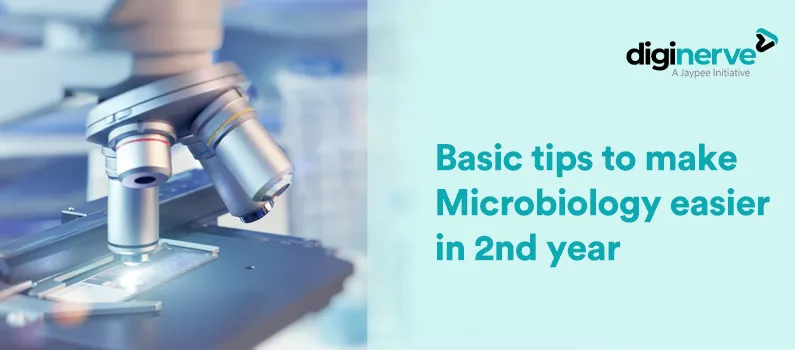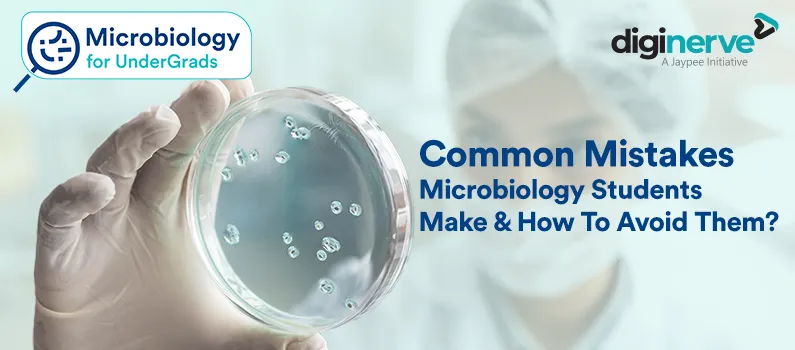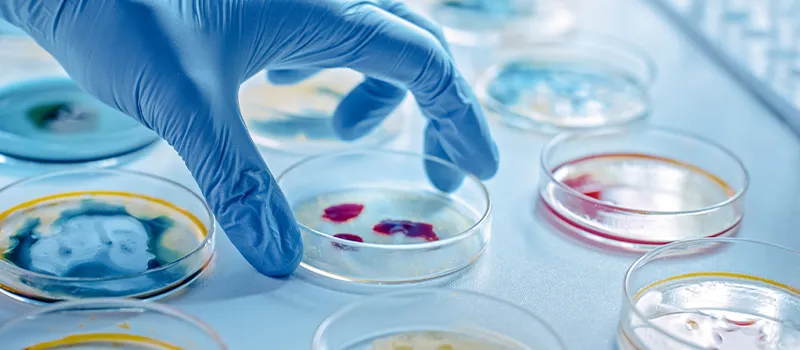

Important Topics for Microbiology in MBBS
MBBS course, in the initial two years, revolves around non-clinical and para-clinical subjects. These subjects form the foundation for the clinical subjects that are a part of the last two years of the course.
It has been more than two and a half years since COVID-19 began, and ever since then, lives have changed for the good and bad. More than anything else, what we know now as medicos is, that a single microorganism can do wonders when it comes to projecting virulence. Lately, due to those same reasons, this chapter in our microbiology book has gained importance, and this subject, as a whole, is now in the sheer limelight.
As medical students, it seems difficult to develop an interest in subjects that do not seem to have any visible application, like microbiology, and other non-clinical subjects, like biochemistry. However, irrespective of the specialty, you’ll be in, you will be expected to have complete knowledge of all your undergraduate subjects, and that is when you’ll be known as a Top Doc. For this reason, you can’t ignore any of your nonclinical subjects, no matter how boring they might seem.
Microbiology course for undergrads is not as disinteresting as most students think it is. Especially after the introduction of the new Competency-Based Medical Education (CBME), the way of learning and teaching microbiology has been improvised a lot whereas the core syllabus isn’t changed much. Earlier, it was based on organism-based approach, but it has now been completely changed to systemic approach, focusing on each of our body’s systems separately and then classifying diseases accordingly.
As an undergraduate, to excel in the university exams, you must know the examination pattern and the important topics of the microbiology subject.
Changes in the MBBS Prof Exam Pattern
The MBBS prof examination pattern is a little different from what batches before 2019 had appeared for. Earlier, the paper had 2 parts of 40 marks each, with 20 marks of practical. From 2019 batch onwards, the pattern has changed to 2 parts of 100 marks each, and a 100 marks practical, i.e., a total of 300 marks for each of the MBBS 2nd year subjects. The exam now consists of MCQs, case scenarios, short answer questions, and long answer questions.
So, whenever you begin reading microbiology for your final exams, start from the beginning because the entire microbiology is an extension of general microbiology. If your general microbiology is weak, you will never gain confidence in the rest of the syllabus.
Recommended books for Microbiology for UnderGrads include “Essentials of Medical Microbiology” and “Essentials of Medical Parasitology” by Dr. Apurba Sastry and Sandhya Bhat.
Important Topics of Microbiology in MBBS
Let’s know the important topics in Microbiology from MBBS prof exam’s and entrance examination’s perspective.
A medico can easily get to learn all the important topics with Dr. Apurba Sastry’s “Essentials of Medical Microbiology” book. Besides the book, one can also get conceptual clarity with the online course – Microbiology for UnderGrads by Dr. Apurba Sastry, Dr. Sandhya Bhat, and Dr. Deepashree R. This course is aligned with the textbook by the same author.
GENERAL MICROBIOLOGY MODULE
- Contributions of Louis Pasteur
- Koch’s Postulates
- Bacterial cell wall
- Flagella
- Bacterial growth curve (a must-know topic)
- Anaerobic culture methods
- Antimicrobial susceptibility testing
- Horizontal gene transfer
- Antimicrobial resistance
- Exotoxin vs endotoxins
- Isolation techniques for viruses
- Classification with examples (parasites and fungi)
IMMUNOLOGY MODULE
- Innate immunity vs acquired immunity
- Active immunity vs passive immunity
- Definitions of antigen, hapten, super antigens
- Structure of an antibody
- Various classes of immunoglobulins
- Monoclonal antibodies
- Basic mechanism of precipitation reaction and agglutination reaction
- ELISA (in detail)
- MHC
- Cytokines
- Hypersensitivity reactions with their types
- Mechanisms and examples of autoimmunity
- Mechanism of graft rejection
- Types and examples of vaccines
Before you begin reading the systems, there are chapters on sterilization and disinfection, which have gained more importance after COVID-19. These are highly important chapters because they will teach you basic things like biomedical waste management, PPE kits etc.
So, there are a few questions that are very frequently asked from
STERILIZATION AND DISINFECTION
- Healthcare-acquired infections (definition, and examples)
- The steps of hand washing (will rarely come as a theory question but this holds practical application)
- Types of masks
- Steps of donning and doffing
- CAUTI and VAP
- Definitions of sterilization, disinfection, and cleaning
- Autoclave
- ETO
- Disinfectants (according to the levels)
- Methods to test the efficacy of sterilant
- Color coding of dustbins
- Definition and management of needle stick injury
- Water surveillance
SYSTEMIC MICROBIOLOGY MODULE
Bloodstream & Cardiovascular Infections
- Infective endocarditis
- Acute rheumatic fever
- Fuo
- Typhoid
- Scrub typhus
- Brucellosis and leptospirosis
- HIV (in detail)
- Dengue
- Malaria
- Leishmaniasis
- African sleeping sickness
- Lymphatic filariasis
- Systemic candidiasis
Gastrointestinal Tract Infections
- Mechanism of diarrhea and agents
- Lab diagnosis of diarrhea
- Food poisoning
- Botulism
- Types of E.coli
- Shigella
- Cholera
- Rotavirus diarrhea
- Intestinal amoebiasis
- Giardiasis
- Intestinal taeniasis
- Trichura
- Entrobias
- Ascariasis
- Hookworm
The Hepatobiliary System
- Hepatitis
- Liver abscess
- Hydatid cyst
Skin & Musculoskeletal System Infections
- Diabetic foot
- Staph aureus infections
- Streptococcus pyogenes infections
- Gas gangrene
- Lab diagnosis of leprosy
- HSV infections
- VZV infections
- Measles
- Cutaneous leishmaniasis
- Cutaneous larva migrans
- Superficial mycoses
Respiratory Tract Infections
- Agents of respiratory tract infections
- Diptheria
- Pneumonia
- Tb (a very important topic for us as Indians because this disease is very common in our country)
- Influenza
- Coronavirus (which you cannot skip)
- Infectious mononucleosis
- Aspergillosis
CNS Infections
- Meningitis
- Tetanus
- Rabies especially the vaccine prophylaxis
- Cerebral malaria
- Sleeping sickness
Urinary tract Infections
- Pathogenesis of UTI
- Syphilis, especially the lab diagnosis
- Agents of UTI
- Chancroid
- Chlamydia infections
Miscellaneous Infections
- Congenital syphilis
- Oncogenic viruses
- Zoonotic infections
- Bite wound infections
You will also have to prepare for the practical exam, wherein, passing the practical exam is as important as the theory exam. Moreover, because it holds a weightage of 100 marks, you cannot go unprepared.
Click here to watch online microbiology video lecture snippets by Dr. Apurba Sastry.
Must know topics for practical examination
- Basic staining techniques, like gram staining and Zn staining, Albert staining
- Bacterial colony characteristics and their biochemical identification reactions
- Principles behind the reactions and their reagents.
- parasites and how to prepare mounts of stool specimens
- OSPE stations where several instruments used in the microbiology lab can be kept for spot identification.
Important Topics for Microbiology subject in MBBS (For NEET-PG and INI-CET entrance examinations)
During your MBBS, not just the university exams, but your focus should also be on the early preparation of your competitive exams if you dream to settle in a decent post-graduation specialty. There are two main exams currently being held in India, the INI-CET and NEET PG 2023/NEXT. The weightage of microbiology in the INI-CET is approximately 14-16 questions every year and in NEET PG 2023 almost 10 questions are asked every year.
Some of the important topics are mentioned below:
General Microbiology
Includes bacterial cell wall, bacterial toxins, hot air oven, autoclave, chemical antiseptics and disinfectants, disinfection in a healthcare setting, mac conkey agar, bacterial gene transfer (transformation, transduction, and conjugation), lytic and lysogenic phase of a bacteriophage life cycle, and bacterial growth curve.
Bacteriology
Includes morphology, virulence factors, pathogenesis, clinical manifestations, and lab diagnosis of Staphylococcus, Streptococcus, Pneumococcus, Enterobacteriaceae (coliforms-proteus, shigella, salmonella), Vibrio, and Mycobacterium (tuberculosis).
Slight overview of Neisseria, Clostridium, Pseudomonas, Brucella, Mycoplasma, wound infection (staph), and invasive diarrhea is important.
Cover UTI, STDs (Syphilis), Meningitis, and FUO.
Virology
Study Orthomyxoviruses: Influenza (Hemagglutinin, Neuraminidase, Antigenic drift, and shift), Hepatitis B, lab diagnosis, Corona, HIV, ELISA, and a slight overview of Herpes.
Cover Picornavirus: Polio, Rabies virus
Mycology
Include Classification, Dermatophytes, Mycetoma, Rhinosporidiosis, and Histoplasmosis.
Cover Opportunistic: Aspergillosis, Candidiasis, Zygomycosis, Cryptococcus, and Pneumocystis
Parasitology
Life cycles, morphology, lab diagnosis, and clinical manifestations of Ascaris, Trichuria, Enterobius, Echinococcosis (Hydatid cyst), Entamoeba, Giardia, Cryptosporidium, Plasmodium, Leishmania and Wuchereria, Taenia, Ancylostoma, and Toxoplasmosis.
Don’t miss out on these important topics to score high in exams. Undoubtedly, all of us have a different method of learning and DigiNerve has got you covered in all situations. If you are among those who grasp more from visual learning, Microbiology for UnderGrads is one of the best online microbiology course designed by renowned authors, Dr. Apurba Sastry, Dr. Sandhya Bhat, and Dr. Deepashree R. This online microbiology course comprises highly illustrative video lectures and notes, along with self-assessment questions and case studies. The lectures follow the new CBME approach to provide conceptual clarity and score high in the prof as well as entrance examination.
Frequently Asked Questions (FAQs)
-
What are the major topics of microbiology?
The important topics for microbiology include Bacterial cell walls, bacterial toxins, hot air ovens, autoclaves, chemical antiseptics, and disinfectants. In the Bacteriology module, Morphology, virulence factors, pathogenesis, clinical manifestations, and lab diagnosis of Staphylococcus, Streptococcus, Pneumococcus, Enterobacteriaceae (coliforms-proteus, shigella, salmonella), Vibrio, Mycobacterium (tuberculosis) and in Parasitology module, Life cycles, morphology, lab diagnosis, and clinical manifestations of Ascaris, Trichuria, Enterobius, Echinococcosis (Hydatid cyst), Entamoeba, Giardia, Cryptosporidium, Plasmodium, Leishmania and Wuchereria, Taenia, Ancylostoma, and Toxoplasmosis are important topics for exams.
-
Is microbiology important for NEET PG?
Yes, microbiology is important for the NEET PG exam. Approximately, 10 questions come from the microbiology subject in the NEET PG entrance examination every year.
-
How to learn Microbiology for MBBS online?
A medico can subscribe to the online microbiology course or access the online video lectures available on youtube. Microbiology for UnderGrads is one of the best online microbiology courses designed by renowned authors, Dr. Apurba Sastry, Dr. Sandhya Bhat, and Dr. Deepashree R. This online microbiology course comprises highly illustrative video lectures and notes, along with self-assessment questions and case studies. The lectures follow the new CBME approach to provide conceptual clarity and score high in the prof as well as entrance examination.
-
Which is the best book for microbiology for MBBS students?
The recommended books for Microbiology for UnderGrads include “Essentials of Medical Microbiology” and “Essentials of Medical Parasitology” by Dr. Apurba Sastry and Sandhya Bhat.
Related post
Related Courses
Pathology for UnderGrads
Prof Harsh Mohan , Prof Ramadas Nayak , Dr Debasis...
Microbiology for UnderGrads
Dr Apurba S Sastry , Dr Sandhya Bhat , Dr Deepashr...

